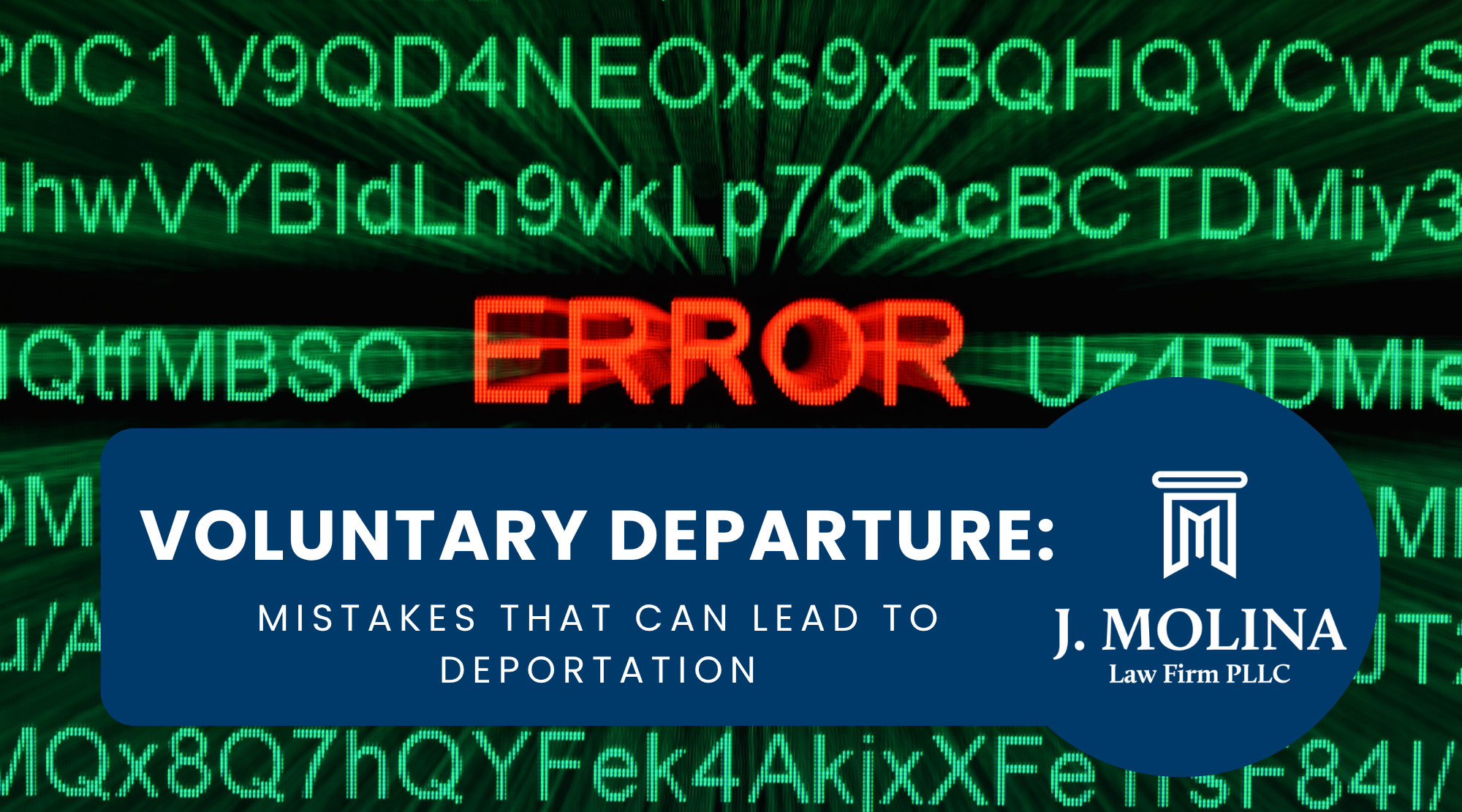When someone faces removal proceedings in the United States, one of the options that may be offered is voluntary departure. This can seem like a more graceful way to close an immigration case, since it avoids having a formal deportation order on your record. However, several common mistakes can cause this benefit to backfire, turning it into a full deportation with serious long-term consequences.
In this blog, we’ll explain what voluntary departure is, the most frequent errors immigrants make, and how you can avoid them to protect your future in the U.S.
What Is Voluntary Departure?
Voluntary departure allows certain immigrants to leave the U.S. on their own, at their own expense, without receiving a formal order of removal. It may be granted by an immigration judge or by a DHS officer, and usually comes with specific conditions—most importantly, leaving the country by a set deadline.
Handled correctly, this option can help you avoid harsh penalties like bans on re-entry, and may keep your immigration record cleaner for future applications.
Mistake #1: Failing to Leave on Time
The most serious and common mistake is not leaving the country within the allowed time. Whether you were given 60 or 120 days, missing that deadline means your voluntary departure automatically turns into a removal order.
This can result in:
- A 10-year bar from returning to the U.S.
- Ineligibility for many immigration benefits.
- A negative immigration record that’s hard to fix later.
Mistake #2: Not Submitting Proof of Departure
Even if you leave on time, it’s critical to submit reliable proof to immigration authorities that you did. This includes:
- Passport exit stamps.
- Flight tickets and boarding passes.
- Forms signed by CBP officers at your port of departure.
Failing to send this documentation may lead the government to assume you never left—triggering a deportation order even if you complied.
Mistake #3: Believing It Erases All Immigration Penalties
Voluntary departure does not erase your immigration history. If you accrued more than 180 days of unlawful presence before departing, you could still face a 3- or 10-year re-entry bar. Additionally, those with past immigration fraud or criminal convictions may still be subject to further penalties, even after leaving voluntarily.
Mistake #4: Accepting Voluntary Departure Without Legal Advice
Too often, immigrants agree to voluntary departure without fully understanding their rights or options. In some cases, they may be eligible for asylum, cancellation of removal, or adjustment of status. But without legal guidance, they miss the chance to fight their case and remain legally in the U.S.
Once you accept voluntary departure, you give up your right to appeal, making legal advice absolutely essential before agreeing to it.
What If You Made One of These Mistakes?
If you missed the deadline or failed to submit proper documents, you may still have legal options, such as:
- Requesting case reopening due to procedural errors.
- Applying for a waiver based on humanitarian grounds or family ties.
- Filing new applications if your personal circumstances or immigration laws have changed.
Every case is unique, and time is critical—don’t wait to seek help.
Need Legal Help? Contact J. Molina Law Firm Today
At J. Molina Law Firm, we know how complex and stressful immigration matters can be. A mistake in your voluntary departure process can impact your future for years, but with the right guidance, you can still protect your rights and explore new options.
Call us today for a confidential consultation. We’ll review your case, explain your legal options, and guide you every step of the way.



